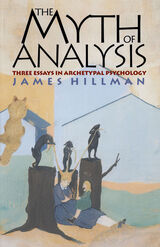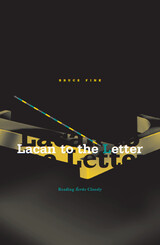Illusions of a Future: Psychoanalysis and the Biopolitics of Desire
Duke University Press, 2014
Paper: 978-0-8223-5721-6 | Cloth: 978-0-8223-5708-7 | eISBN: 978-0-8223-7642-2
Library of Congress Classification BF173.S3279 2014
See other books on: Future | Illusions | Psychoanalysis | Psychoanalysts | Psychotherapy
See other titles from Duke University Press
Paper: 978-0-8223-5721-6 | Cloth: 978-0-8223-5708-7 | eISBN: 978-0-8223-7642-2
Library of Congress Classification BF173.S3279 2014
ABOUT THIS BOOK | AUTHOR BIOGRAPHY | REVIEWS | TOC | REQUEST ACCESSIBLE FILE
ABOUT THIS BOOK
A pioneering ethnography of psychoanalysis, Illusions of a Future explores the political economy of private therapeutic labor within industrialized medicine. Focusing on psychoanalysis in Chicago, a historically important location in the development and institutionalization of psychoanalysis in the United States, Kate Schechter examines the nexus of theory, practice, and institutional form in the original instituting of psychoanalysis, its normalization, and now its "crisis." She describes how contemporary analysts struggle to maintain conceptions of themselves as capable of deciding what psychoanalysis is and how to regulate it in order to prevail over market demands for the efficiency and standardization of mental health treatments.
In the process, Schechter shows how deeply imbricated the analyst-patient relationship is in this effort. Since the mid-twentieth century, the "real" relationship between analyst and patient is no longer the unremarked background of analysis but its very site. Psychoanalysts seek to validate the centrality of this relationship with theory and, through codified "standards," to claim it as a privileged technique. It has become the means by which psychoanalysts, in seeking to protect their disciplinary autonomy, have unwittingly bound themselves to a neoliberal discourse of regulation.
In the process, Schechter shows how deeply imbricated the analyst-patient relationship is in this effort. Since the mid-twentieth century, the "real" relationship between analyst and patient is no longer the unremarked background of analysis but its very site. Psychoanalysts seek to validate the centrality of this relationship with theory and, through codified "standards," to claim it as a privileged technique. It has become the means by which psychoanalysts, in seeking to protect their disciplinary autonomy, have unwittingly bound themselves to a neoliberal discourse of regulation.
See other books on: Future | Illusions | Psychoanalysis | Psychoanalysts | Psychotherapy
See other titles from Duke University Press


























